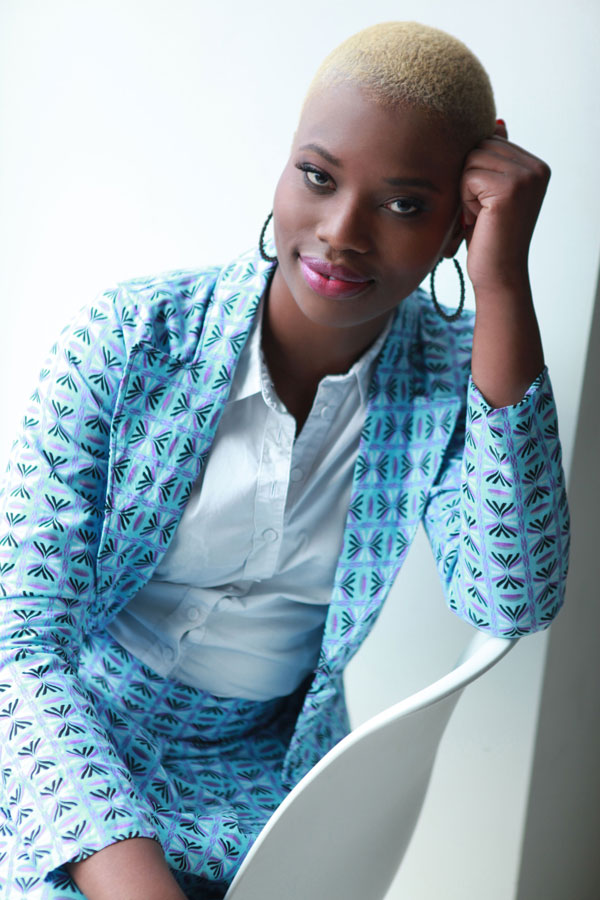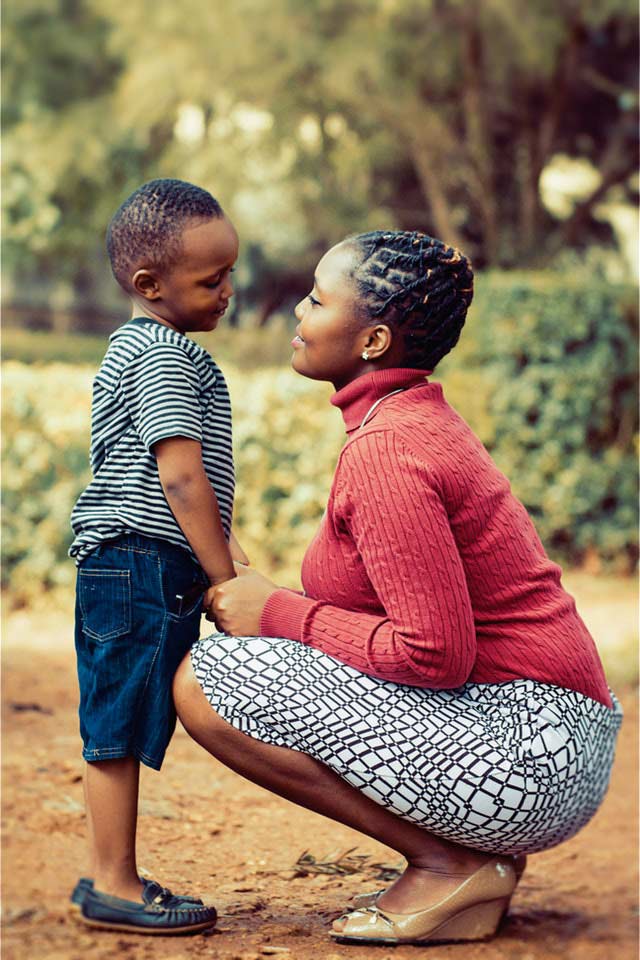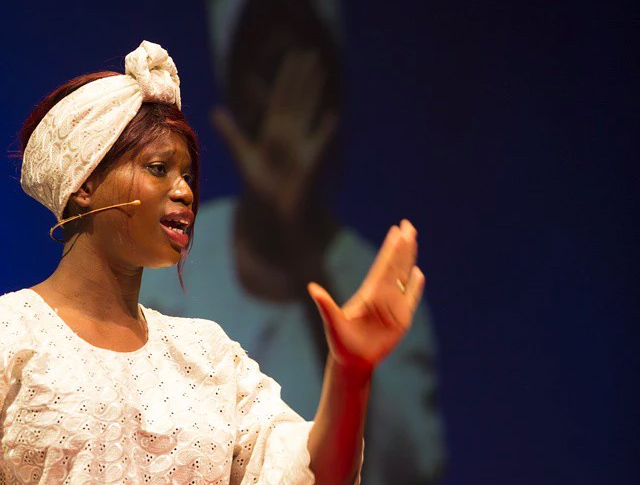This week, inspirational woman Khadija Gbla is sharing her passion and personal experiences with advocacy, gender and identity, peer education, leadership and female genital mutilation. Despite receiving death threats to her and her son, Khadija stands up and speaks up for what she believes in.
Resettling as a refugee in Australia, Khadija regularly experiences discrimination, ageism, racism, sexism and mountains of stigma. Rather than letting it slide, she became interested in human rights at 13. This led her to her work as a human rights activist, coordinating domestic violence prevention and child protection. Additionally, Khadija is Australia’s lead female genital mutilation campaigner and voice. She provides training, advocacy and support for survivors and girls at risk.
Khadija Gbla shares her views on leadership
When I speak up there’s power in saying this is not ok, I’m going to challenge that and make sure it doesn’t happen. I’m going to be a part of the solution. We wouldn’t have had revolutions, or have the right to vote if women of that time didn’t stand up. Those women had to fight.
The only thing I’m in control of is what I’m doing in my life and what I’m doing is making a change. Leadership comes at a cost, people don’t talk about it but it does.
Being a woman in leadership has challenges. It comes with attacks and judgement. Women go to award shows and people are talking about what they’re wearing. Being a woman of colour, I get it from every angle and it’s exhausting.
Leadership is serving and nurturing others potential. It’s not about the limelight. It’s about asking how am I serving, supporting and nurturing others so they reach their potential? As a leader I treat those I work with as equals, respecting what they bring to the table. The people I lead make my life easy, the ideas they come up with are limitless and it’s a team effort. The girls I work with should be the ones on TV, speaking, while I step aside.
Peer education and mentoring
Peer education is what led me to be the leader I am today. Through volunteering, I found a space to see beyond my experience and past my pain and anger into something positive. I found my voice and realised my story and experiences were not just unique to me, but the stories of others as well. From this, I learnt that the personal is political.
People find benefit and validation in speaking to someone who has a lived experience like them, and it’s important not to minimise their experience and knowledge.
Female genital mutilation
As a survivor of FGM myself, I have had this passion and need to ensure it doesn’t happen to another little girl in the world, especially in Australia, where I live and can have the greatest impact.
FGM is done to little girls because of their gender and is a form of gender-based violence. People assume FGM only happens in Africa and ‘we don’t do that in the west’. This is untrue as FGM is a global issue and it is happening in Australia.
What we need to remember when tackling these issues is that culture is fluid, it constantly changes and evolves. We must have a human rights focus as there is no space for racism in our fight against FGM. All children, no matter their culture, race, religion etc deserve to be protected.
The power of sharing my truth is that even though everyone may know what is or isn’t between my legs, I have saved girls from FGM and supported survivors. I have led Australia in a conversation about FGM as child abuse, deserving of our attention and efforts. I have influenced the way we tackle FGM in Australia and trained workers to provide an appropriate response. This means that I am saving lives.
Gender and identity
As a woman of colour who has to deal with the challenges of sexism and racism, intersectionality is very important to me. Intersectionality is the recognition that I face numerous forms of oppression and the many ways they impact me. For example, I have to worry about my accent or whether to change my name on a resume because of racism.
As an intersectional feminist I believe that while another woman’s oppression is different from mine, I can still support their fight for equality and justice. We, as women, must acknowledge that our challenges as women differ from one woman to the next. Whether you’re an Indigenous Australian, Muslim woman, a woman of colour, a woman with a disability, a sexually diverse woman etc. However, it is important that we show up and fight for each other. Our struggles don’t have to be the same for us to truly come together. It shouldn’t matter that someone else’s oppression doesn’t look like yours for you to care. We must challenge and dismantle our privileges to truly create an equal world.
If we don’t show up for others it will hold us all down. We need to support all women to ensure our feminism is inclusive. Unless we’re all free, none of us is free.
Khadija Gbla’s focuses for 2019
I believe that every year you should be doing better than last year. As such, I have a long list of what I want and each year I have goals and intentions I set for myself. My main one is that I want to write a book about my life as a former refugee, surviour of child abuse, FGM and domestic violence survivor; intersectional advocacy, being a black single mum, my African Australian identity and race politics. I also want to have more overseas speaking engagements.
A myth to debunk…
We understand that we live in a world where there isn’t equality but there’s a view that those who are marginalised are asking for a handout or need saving. That grates on me as what we’re asking for is a level playing field, not a leg up, favour or extra stuff. The fight against inequality is not about wanting a handout, it’s one of equality. We need to stop the stereotype that when a marginalised group speak up, and fights for their rights, that they need to be saved. Nobody is asking to be saved. It’s about equality and human rights.
 About Khadija Gbla
About Khadija Gbla
Khadija Gbla is a very passionate and inspiring African Australian woman. She is an award-winning human rights activist, inspirational speaker, facilitator and consultant. She has displayed great courage and determination in achieving her aspirations of giving women, youth and minority groups a voice at a local, state and international level. Khadija utilises her powerful and inspired voice to advocate for equality.
Khadija Gbla has featured on ABC news, the Courier Mail, the Herald Sun and her Ted Talk has received over a million views. Find out more about Khadija’s work https://www.khadijagbla.com.au/





 About the author
About the author

 About Khadija Gbla
About Khadija Gbla